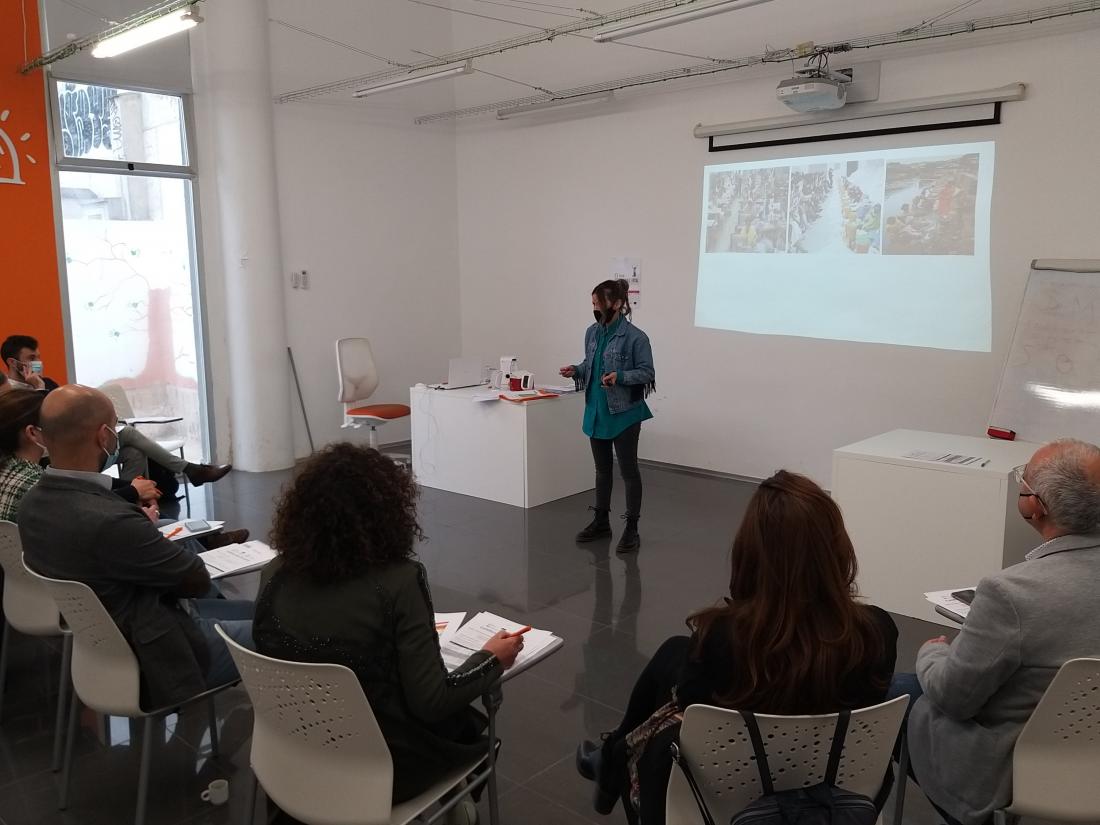MED-InA in Spain supports 4 start-ups and innovative ideas towards zero waste

IDEA Alzira, the incubator in charge of involving the private sector in the MED-InA pilot city of Carcaixent (Valencian Community, Spain), held a pitching event in the Alzira Local Development Agency premises on February 25, to select the best 2 start-ups out of 19 candidates and the best 2 ideas out of 10 candidates.
The 29 candidates had 5 minutes each to convince the jury, who also included the Consorci de la Ribera, Spanish partner of MED-InA, and the American University of Beirut, partner responsible for the selection and coordination of incubators in the 3 pilot cities (Carcaixent, Irbid, La Marsa). AVITEM attended the event as partner in charge of communication: an after movie will be available soon on this website.
After several days of discussion among jury members, due to the quality and quantity of candidates, a final agreement was reached on the 4 following winners:
Ricardo Baguena. Company Cerian Shower SL. Passive Shower Project
This project proposes to install shower trays with integrated energy recovery equipment in new homes, as well as in homes where rehabilitation works are carried out for more efficient homes.
The aim of this installation is to avoid wasting energy, since people shower with water at 40ºC and only use the energy of the hot water for a few seconds; the time it takes for the water to reach the drain still hot at 35ºC and all that immense amount of water energy is wasted. This installation therefore aims to reuse the energy of the water that has just fallen into the drain to heat the water that is being used at that moment.
The reasons for its selection for a MED-InA prize are the easy installation of this device, which does not have very high installation costs, and the great implication it has in energy saving.
María Oneida Román Carbonell, Laüd Recycled Project
The objective of this project is to design, manufacture and commercialise a casual footwear collection made of 100% recycled materials.
It has a vision of reuse and recycling. Based on the idea that, of all the carbon dioxide (CO2) produced during the manufacture of footwear, 58% would correspond to the manufacturing of the components (tongue, leather, insole, sole, etc.), 16% to the manufacturing of the packaging, 11% to the assembly and finishing and only 6% to the distribution of the final product.
Therefore, this project, which focuses on the reuse of materials, would help to reduce all these emissions, as well as to mark a before and after, locally, in the creation of recycled footwear and products, which are no less attractive in the consumer market.
Jorge Sanchez and Asier Martinez, QUIMSIL Company. Quimsil Project
Silicones are polymers formed by silicon, oxygen and carbon chains that are used in the industry for an infinite number of applications. Once discarded, they become a plastic waste, with the disadvantage compared to other polymers that they hinder incineration processes and cause a strong environmental impact.
Quimsil is a business project focused on the formulation and production of silicones, more specifically silicone rubbers. They are specialists in these polymers and therefore can modify it depending on the projected use, specifically they plan to start with the footwear sector, but expand in the future to other sectors that use this polymer, such as kitchenware, plastic injection or electronics sector.
The most innovative part is that it incorporates the collection of waste generated by customers, recycling it to incorporate it again as raw material. Achieving up to 70% recovery of waste, with all that this entails for the environment, as well as a 20% cost saving in purchases for customers.
This project therefore adopts the circular economy model, greatly reducing the generation of waste and the consumption of raw materials.
Aida Gamiz. Miachėlla Project
The Miachėlla project is about giving a new life, with textile art, an added value to any garment with techniques such as the so-called upcycling (suprarecycling) which is based on the creative reuse of waste materials.
The essence of Miachėlla through textile art is to recover, reactivate, dignify and conserve existing materials through sustainable fashion, thus reducing the consumption of raw materials, giving it ecological value and thus promoting the circular economy.
The 4 winners of this pitching event have earned: 10,000 euros for the 1st prize in each category and 5,000 euros for the 2nd prize in each category, in addition to a 3-month incubation and support period, ensured by IDEA Alzira. More in-depth interviews of the 4 projects will be published on this website in the coming weeks, so stay tuned!







